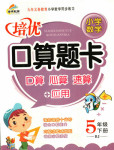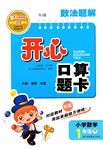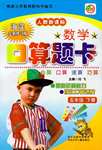题目内容
首字母填空 (本大题共5分,每空0.5分)
根据对话内容和所给首字母,在空格内填入一个适当的单词,使对话意思完整。
Dear Lily,
I’m happy to get your letter. I r 1. it after school today. Now let me tell you a2. me. I like swimming. I swim every day in s3. . You know summer in England is very hot. I also like reading. I read different k4. of books. I read two o5. three books a week. I like w6. , too. I want to be a writer(作家) in the future(将来)
I also like playing w7. my dog, Mickey. He is big and needs a lot of exercise. So at weekends we often go for a long w8. near my house. Mickey likes jumping into water. He is a good swimmer.
Well, these are my h9. . Please write and tell me about y10. .
All the best
Amy
1.read
2.about
3.summer
4.kinds
5.or
6.writing
7.with
8.walk
9.hobbies
10.yours
【解析】本文是一封回信,主要讲述自己的爱好是游泳、阅读、写作和与宠物狗散步,并请求Lily回信告诉她的爱好是什么。
1.考查动词。句意:放学后我读的信。根据上句得知收到信后要读信可知答案填read。
2.考查介词。句意:我来告诉你我的事情。 Tell sb about sb/sth固定搭配,告诉某人关于某人或某事,填about.
3.考查名词。句意:夏天我每天游泳。根据 I swim every day,可知是在夏季,填summer。
4.考查名词。句意:我读不同种类的书。 根据different可知,作者读不同种类的书,填kinds。
5.考查连词。句意:我一周读两三本书。根据two 和three可知每周读的书数量不是两本就是三本,填or。
6.考查动名词。句意:我也喜欢写作。 根据I want to be a writerin the future,可知作者喜欢写作,填writing.
7.考查介词。句意:我也喜欢和狗玩。 Play with 与......玩,固定搭配,填with。
8.考查名词。句意:所以周末时我们会在我家附近散步很长时间 。根据He is big and needs a lot of exercise可知周末去遛狗,填walk.
9.考查语境判断。句意:这些是我的习惯。根据上文可知讲的是习惯与爱好,填hobbies。
10.考查物主代词。句意:请写信告诉我你的习惯。名词性物主代词后不需要接名词,填yours.
考点:单词拼写。

 培优口算题卡系列答案
培优口算题卡系列答案 开心口算题卡系列答案
开心口算题卡系列答案 口算题卡河北少年儿童出版社系列答案
口算题卡河北少年儿童出版社系列答案 __________
1. by car or by bike. They also get from place to place using p__________2.transport
such as buses and trains. However, some people live in parts of the world where
it is i__________3. to build roads. In these places, animals or other forms of
transport have to be used.
__________
1. by car or by bike. They also get from place to place using p__________2.transport
such as buses and trains. However, some people live in parts of the world where
it is i__________3. to build roads. In these places, animals or other forms of
transport have to be used.